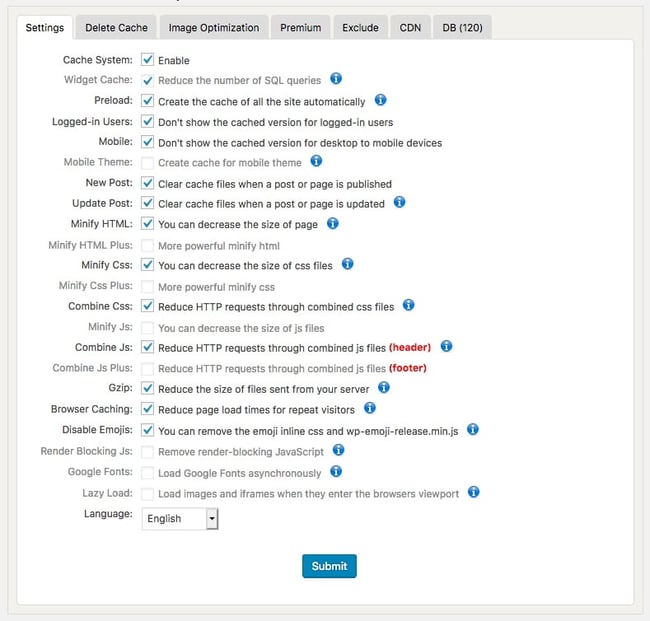The Litespeed Cache Vs. Wp Rocket Statements
Table of ContentsRumored Buzz on Litespeed Cache Vs. Wp RocketThings about Litespeed Cache Vs. Wp RocketGetting My Litespeed Cache Vs. Wp Rocket To WorkFascination About Litespeed Cache Vs. Wp RocketWhat Does Litespeed Cache Vs. Wp Rocket Do?
Some styles are much cleaner and more enhanced than others. They have a smaller sized documents dimension, making them simpler to fill. That also implies they have fewer bells and whistles (consider animation or specialized style patterns) contrasted to others that are a bit additional. Yet that's a good trade-off if you want far better loading performance.If you're running your site on Word, Press, you're undoubtedly using plugins and widgets to include functionalities to your site. Every plugin you mount adds a bit of code to your web page, making it much heavier than it should be.
Allow's say your web server is based in Australia, however you have lots of visitors from India. Rather than sending documents directly from Australia, the CDN can send out data from a web server in India, making this procedure much faster and a lot more efficient. Redirects are a natural component of any kind of web site, and there's nothing wrong with them.
The Of Litespeed Cache Vs. Wp Rocket
By connecting as close to the final destination as possible, you prevent producing also lots of redirects and hence, lower your website's tons. Unsurprisingly, some of the best sources for enhancing your website are from Google.
It sums up the user experience of site visitors to your website, showing exactly how many URLs pass or fall short Core Web Vitals and various other page experience signals. Lighthouse, for Google Chrome This is just one of the most advanced efficiency measurement tools readily available and wonderful for benchmarking. Web, Page, Examination This device provides a waterfall representation of just how all the assets tons on your internet site.
Every user is various. Locate out who your individuals are, exactly how they access your website, and what they do while they're there.
Utilize the recommendations to obtain begun on enhancing your page speed, yet do take these with a grain of salt. They are wonderful starting factors, but there is so a lot more you can do!

This will certainly decrease latency and outcome in improvements to your page rate due to the fact that it decreases any possibility of a hold-up or the number of round trips created.
Rumored Buzz on Litespeed Cache Vs. Wp Rocket
As internet page innovation, like the advancement and vast usage of Java, Manuscript collections, has actually advanced in time, making use of see this here this technology has been tempered by the speed, or bandwidth, of Net links and the handling and memory resources of gadgets. Simply put: the much more data and resources the web server sends out to the web browser, the longer it takes to deliver the "package" throughout an internet connection and the slower the page will certainly be visually made in the internet browser and come to be useful.

This is so when a visitor sees this web site once again, it doesn't have to refill the whole page. This benefits web page speed, as this saves on time invested sending out several HTTP requests to the server. A fringe benefit is the decrease of data transfer and for that reason the total price of holding your site.
This will certainly lower latency and outcome in improvements to your web page rate due to the fact that it reduces any possibility of a hold-up or the number of round journeys generated.
As internet page modern technology, like the growth and vast usage of Java, Script libraries, has actually progressed with time, making use of this modern technology has actually been solidified by the speed, or bandwidth, of Internet links and the handling and memory resources of devices. In other words: the extra information and resources the server sends out to the internet browser, the longer it takes to deliver the "plan" throughout a web connection and the slower the web page will be visually provided in the dig this internet browser and become useful.
Web page speed influences traffic throughout all channels and resources, but since Google has actually led developments being used page speed in web search ranking formulas, lowering latency has actually become a core part of search engine optimization. While anything that includes time to the page making procedure is a page rate aspect, there are several concerns that are most common: The time in between when the individual or internet browser requests the web page and the preliminary response from the server is referred to as the web server response time, likewise measured as Time To First Byte (TTFB), or the time at which the web server sends the very first data that the web browser can make use of to construct and make the web page.